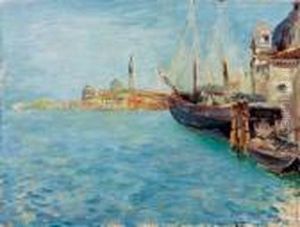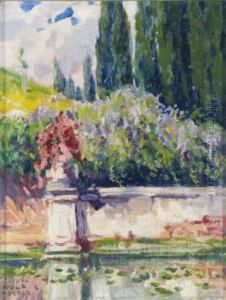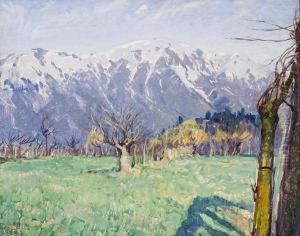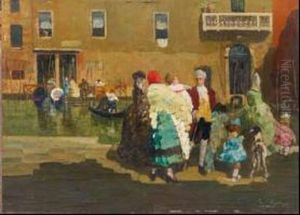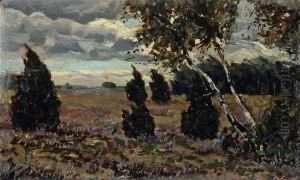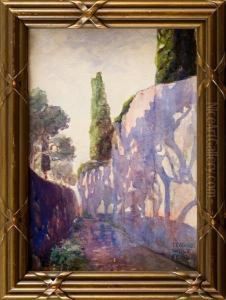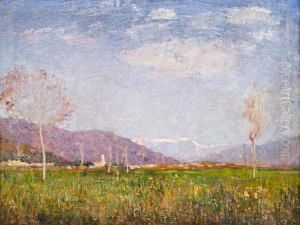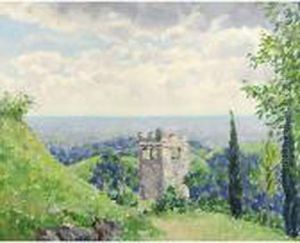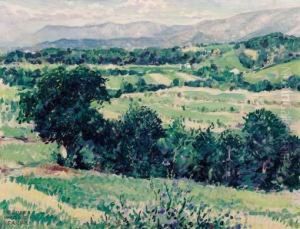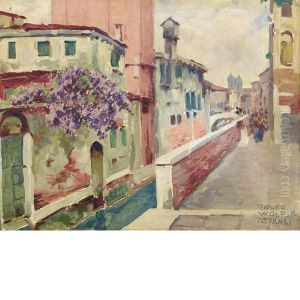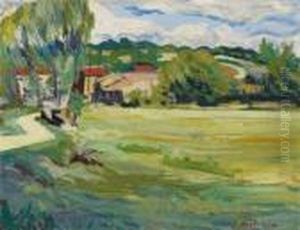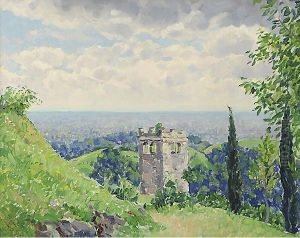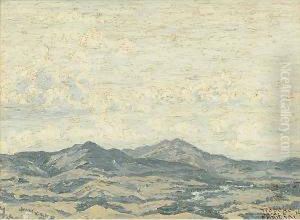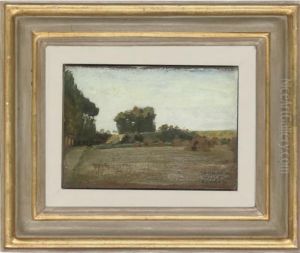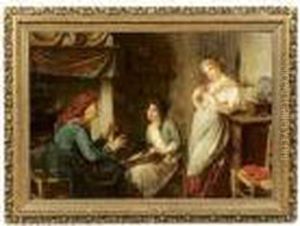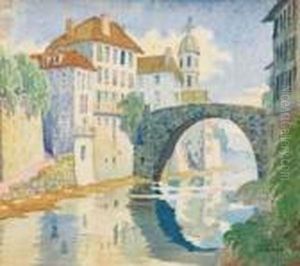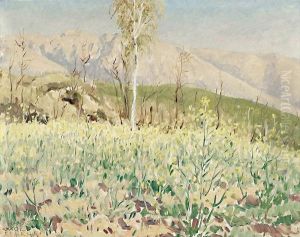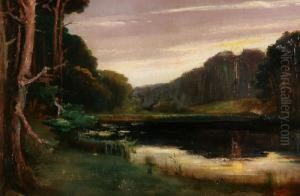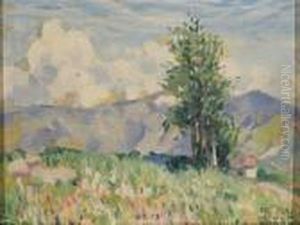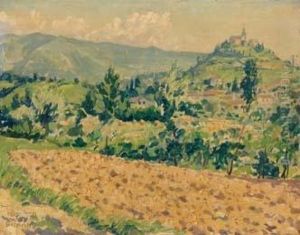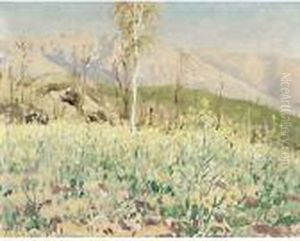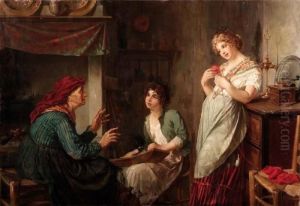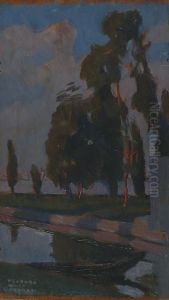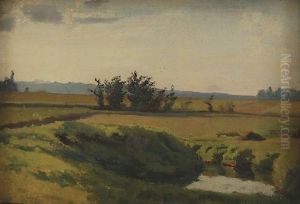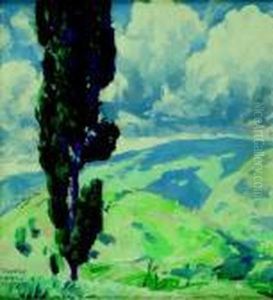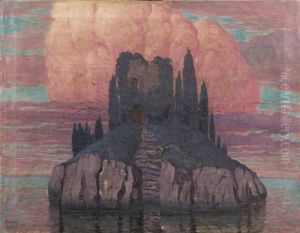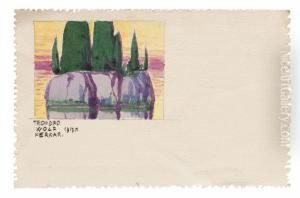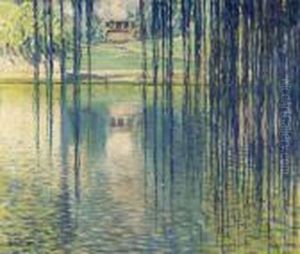Teodoro Wolf-Ferrari Paintings
Teodoro Wolf-Ferrari was not primarily known as a visual artist, but rather as an Italian composer and theatre director of German descent. Born on January 12, 1876, in Venice, Italy, Wolf-Ferrari was the son of a German painter, August Wolf, and an Italian mother, Emilia Ferrari. His double surname is a combination of his parents' last names. He showed significant musical talent from an early age and initially studied painting under the guidance of his father before committing to music.
Wolf-Ferrari's musical education took him to Munich, where he studied with Joseph Rheinberger and later with Max von Schillings. His early compositions include chamber music and one-act operas that reflect a blend of Italian lyricism and German structure. He gained fame with his comic operas, which were rooted in the Venetian tradition, such as 'Le donne curiose' (1903), 'I quattro rusteghi' (1906), and 'Il segreto di Susanna' (1909). These works were well-received and helped establish his reputation as an operatic composer.
During World War I, Wolf-Ferrari served in the Italian army, and his experiences during the war influenced his later compositions, which often took on a more somber and reflective tone. After the war, he continued to compose, though his later operas did not achieve the same level of success as his earlier ones. He also composed instrumental works, including symphonies, concertos, and chamber music.
Wolf-Ferrari's style is noted for its melodic beauty, orchestral color, and the synthesis of musical elements from both his German and Italian heritage. His works often display a romantic sensibility, tempered with classical form and counterpoint. Despite being less known today compared to his contemporaries, Wolf-Ferrari's music is still performed and appreciated for its charm and craftsmanship.
He spent the latter part of his life teaching and composing. In the 1930s, he held a position as the director of the Venice Conservatory, which was a testament to his musical impact and recognition in Italy. Teodoro Wolf-Ferrari died on January 21, 1948, in Venice. His legacy lives on through his music, which remains a unique blend of the operatic traditions of Italy and the compositional rigor of Germany.
